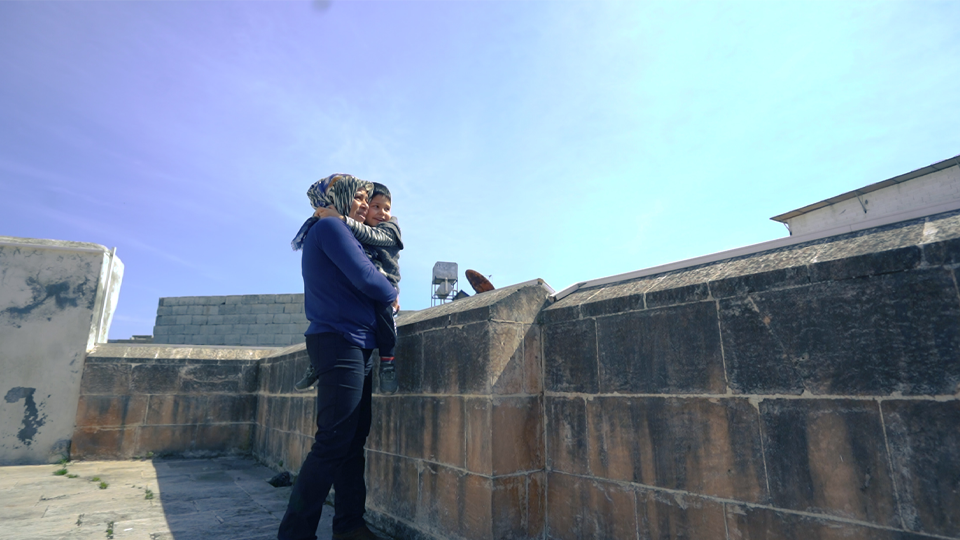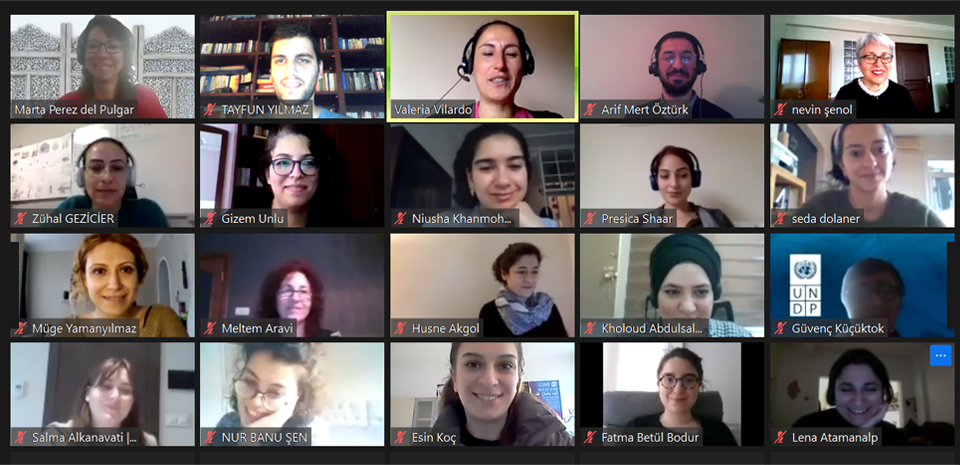UN Women strengthens the gender responsiveness of the Syrian refugee resilience programmes in Turkey
To strengthen the gender perspective in the critical Regional Refugee Resilience Plan in Turkey, UN Women recently delivered gender and refugee response trainings together with partner UN Agencies.
Date:

In Turkey, of those who need humanitarian aid, half are women and girls. Women head 60 per cent of refugee households. Despite the Government's tremendous efforts, Syrian women and girls have limited access to prevention, protection, and legal services. Women also shoulder the care work of their children and other family members. The rapid spread of COVID-19 has further increased the challenges and risks faced by refugee women and girls.
Gender and refugee response trainings provide a space for all represented entities to elaborate the gender perspective of humanitarian action, where different needs of women and girls, men and boys should be considered to achieve sustainable, empowered, and resilient communities.
As part of its work with the Regional Refugee Resilience Plan (3RP) in Turkey, UN Women conducted two inter-agency trainings on 7 October 2020 and 26 January 2021. The trainings were conducted in partnership with the UN High Commission for Refugees (UNHCR), the United Nations Development Programme (UNDP) and the United Nations Population Fund (UNFPA). The diverse participants included UN agencies and non-governmental organizations (NGOs) working in the field.
Speaking during the opening session on 26 January 2020, UN Women Turkey Country Director Asya Varbanova emphasized the importance of women’s empowerment: “Refugee and local women's empowerment is critical, not as recipients of assistance but as agents and leaders of transformative change,” she added, “Given all the challenges that the world is facing, advancing women´s rights and their meaningful participation in building sustainable peace and resilience is more important now than ever.”

Valeria Vilardo, Gender Sensitive Recovery and Resilience Specialist at UN Women Europe and Central Asia Regional Office (ECARO), said that the trainings for 3RP partners was important to help integrate a gender perspective into the humanitarian response. “A gender mainstreamed humanitarian action fully takes into account the different needs of women and men, girls and boys and it should be the basis of all the humanitarian efforts,” she said and added, “Gender and refugee response trainings enable us to promote gender-responsive services to make sure that women and girls’ needs are framed in humanitarian responses.”
Beyond these specific trainings, the UN Women Turkey Office, together with UN Women ECARO, work with the 3RP in Turkey to strengthen the gender perspective in humanitarian response plans overall. Through training and workshops provided with 3RP partners, UN Women improves the understanding of gender mainstreaming in humanitarian action. The aim is to ensure that women and girls benefit equally from the humanitarian response and are part of building resilience.
Being the platform for strategic coordination, planning, advocacy, fundraising, and programming for humanitarian and development partners to respond to the Syria crisis, the 3RP gathers UN Agencies, government and non-governmental organizations in Turkey to coordinate the humanitarian response. UN Women’s support to 3RP promotes gender analysis, using sex and age disaggregated data and increases capacity in using the new Inter-Agency Standing Committee (IASC) Gender and Age Marker (GAM) self-reporting tool to better frame and address the women and girls' needs.
Refugee and Gender Response Trainings were conducted within the framework of the regional programme “Strengthening the Resilience of Syrian Women and Girls and Host Communities in Iraq, Jordan, and Turkey”, funded by the European Union, the Regional Trust Fund in response to the Syrian Crisis (the EU Madad Fund).